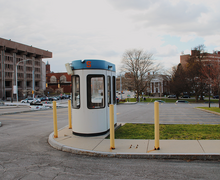Letter to the Editor : University needs medical amnesty policy to protect students’ lives
As an addiction psychiatrist, I have very strong views on the importance of medical amnesty for possible alcohol or other drug overdoses.
The most instructive example occurred in 1986 when University of Maryland basketball player Len Bias died from a cardiac arrhythmias induced by a cocaine overdose. After being selected the second pick in the National Basketball Association draft, he celebrated by using cocaine. He then had three seizures. During and after the first two short seizures, no one called medical authorities because his friends were afraid of what would happen given the illegality of cocaine use. Had they done so, Bias would probably have retired from the NBA a rich man. However, the third seizure did not stop (status epilepitcus), and medical personnel were called. For Bias, the call came too late and he died.
A harm reduction approach to medical amnesty would work best. There should be a consensus among Syracuse University administrators and security, including the Syracuse police, that any student who makes an emergency call for medical assistance for themselves or their friends should be treated without prejudice. This includes use of a substance that produced the possible overdose and any illegal paraphernalia or substances noticed on site by emergency medical technicians. Counseling on the difficulties of inappropriate use of alcohol or other drugs should occur after the person is stabilized and healthy.
Another policy that would be very effective with respect to alcohol would be to have alcohol breathalyzers in every living facility so that students who come home from a night of drinking could get an estimate of their blood-alcohol level. This would enable them, for example, to see whether or not their level would be over the limit for driving while intoxicated, and they could start to see the relationship between their blood-alcohol level and intoxication. It might also give others an estimate of potential alcohol poisoning or genetic tolerance to alcohol. Colleges are for learning, and students would do the math.
Harm reduction approaches in no way condone substance use, a point that should be brought home to timid SU administrators who always fear legal action. By delaying instituting policies like this, they put their students at risk. With good medical attention, the vast majority of people can recover from alcohol or other drug overdose. There is no recovery from death.
Gene Tinelli, M.D., Ph.D.
Class of 1966
Associate Professor
Upstate Medical University
State University of New York
Published on February 19, 2011 at 12:00 pm





